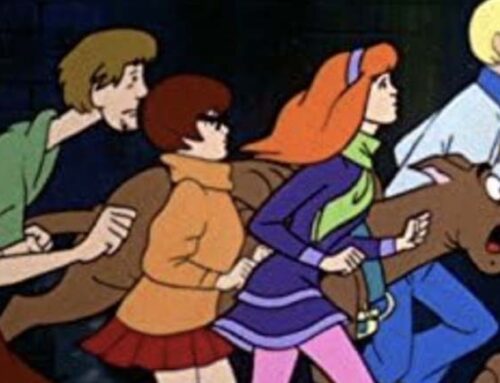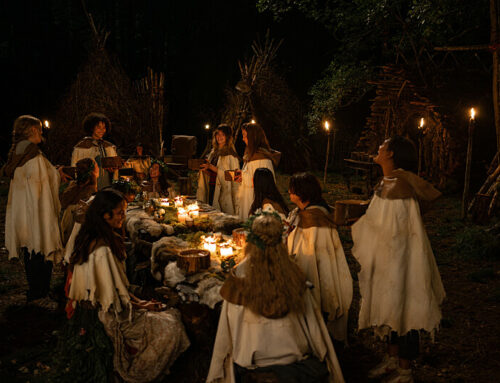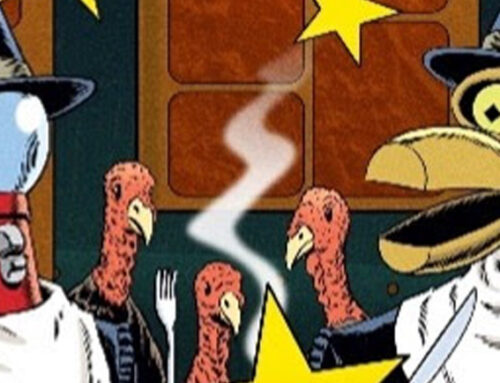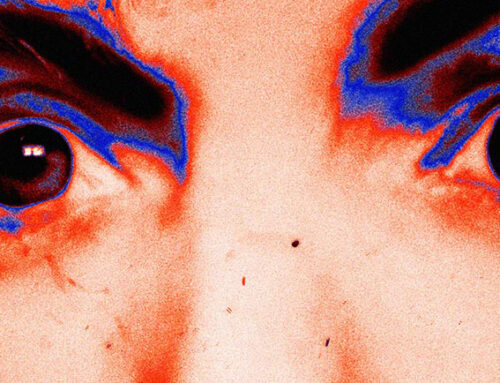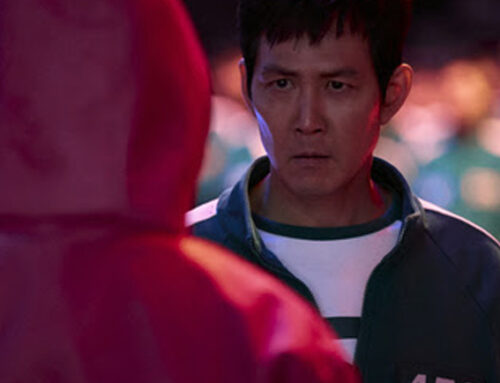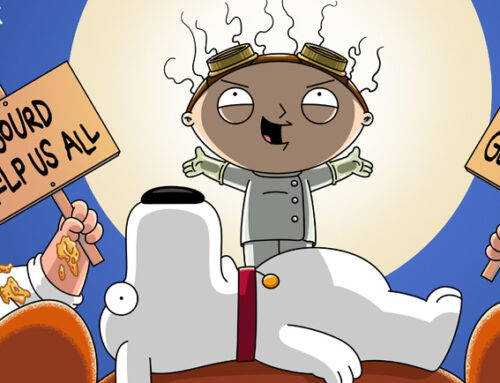Mexican actor, Miguel Sagaz joined the cast of American Horror Story: Cult, and finally began living his dream of working on the hit series alongside Lena Dunham, Dorothy-Marie Jones and series veteran, Jamie Brewer among others. Originally from Mexico City and Madrid, Spain, Miguel moved to Los Angeles in 2005, where he worked as television series actor in well-known shows including CSI:NY, Entourage, Will and Grace among others. His debut in film came in 2008 where he worked alongside actors such as Hector Jimenez (Nacho Libre, El Infierno) and Pedro Armendariz in the Warner Bros/Lemon Films Navidad S.A. (X-Mas Inc.). Yet this was a very important moment for him as both a fan of the show and as an out, Latino actor in Los Angeles.
The seventh episode, which aired on October 17th, saw Sagaz playing the role of Bruce, a man in the army who falls victim to sexual abuse in the barracks and is unwillingly discharged due to this sexual preference. Bruce and his partner Maurice (Ryan Alvarez) are then recruited by Valerie Solanas (Lena Dunham) to her cult of followers, Women of SCUM, a cult who harbors tremendous hate for men and whose purpose is to assassinate them all.
A powerful episode to be sure in a series that had its share of critics. Today we chat with Sagaz about his journey as an actor, his time on the set of American Horror Story and what is coming for this versatile performer.
 HorrorBuzz: You were a huge fan of the series before?
HorrorBuzz: You were a huge fan of the series before?
Miguel Sagaz: Yes.
HB: Okay, let’s talk favorite season. Take CULT out of it because you were in that.
MS: My favorite season I have to say, Coven. I really loved Jessica Lange performance in that one.
HB: Really?
MS: Here’s the thing. I’ve always had something for witches. So since I heard it was going to be about a coven of witches I loved it. I feel it was a really divided season. There were people that connected with it and people that didn’t like it so much. There were also aspects that I loved and stuff that I didn’t like so much but overall, I really l liked Coven. I have to say that I also liked the glamour of Hotel. It took American Horror Story to a new league in terms of production and costume design. It was just so delicious to see that.
What about you?
HB: Asylum. All the way. No question.
MS: Most people are.
HB: Well, I mean, all of the character arcs and story arcs in that particular season are so fulfilling and rewarding and it went to such gritty extremes. Then to have it end on such a graceful note… I mean Coven I like, but there’s no comparison for me.
MS: I agree, I agree.I think Asylum gave me a lot of anxiety.
HB: Yeah.
MS: The thought of being put into a mental institution and not being able to… with people making you feel like your crazy and you’re not. That type of thing.
HB: Then with Lana Banana’s character not being out, having to hide who she is, and to take on something so powerful in that season.
MS: Yes.
HB: Speaking of… What was it like on the set of American Horror Story as an out actor and what is the temperature in the industry overall?
 MS: First of all it was a dream for me. I had to pinch myself every day, walking onto the Fox lot, onto those sets everyday. You understand it, as a fan, it was huge for me. I had always wanted to be on a show and I am such a fan of Ryan Falchuk and everything they touch. They are pioneers in the industry. Especially with their Half Foundation they have where its all about inclusion. Where 50% are gay and lesbian and 50% are women. My director was Rachel Goldberg and I was working with Lena Dunham. Everything was incredibly surreal to me. I also felt incredibly included, not just as a gay actor but as a Mexican actor. I’m not trying to sell myself as a Mexican actor here but at moments it’s a crutch. I might not get into rooms sometimes because I do not look like the stereotypical Mexican so I’m never really booking latino roles yet it’s part of who I am. To get this chance, where I was Ryan Murphy’s choice to play this character where it didn’t matter where he came from or the color of his skin but was telling a universal story about sexual abuse and oppression, it was an incredible experience on every layer.
MS: First of all it was a dream for me. I had to pinch myself every day, walking onto the Fox lot, onto those sets everyday. You understand it, as a fan, it was huge for me. I had always wanted to be on a show and I am such a fan of Ryan Falchuk and everything they touch. They are pioneers in the industry. Especially with their Half Foundation they have where its all about inclusion. Where 50% are gay and lesbian and 50% are women. My director was Rachel Goldberg and I was working with Lena Dunham. Everything was incredibly surreal to me. I also felt incredibly included, not just as a gay actor but as a Mexican actor. I’m not trying to sell myself as a Mexican actor here but at moments it’s a crutch. I might not get into rooms sometimes because I do not look like the stereotypical Mexican so I’m never really booking latino roles yet it’s part of who I am. To get this chance, where I was Ryan Murphy’s choice to play this character where it didn’t matter where he came from or the color of his skin but was telling a universal story about sexual abuse and oppression, it was an incredible experience on every layer.
HB: Do you see a difference now with the doors that are opening for Latinos or gays?
MS: Yeah I mean I think slowly but surely doors are opening. I would not have had this opportunity ten years ago. I remember looking for work in 2005 the casting directors were like, “Oh we don’t know where to place you. Yeah you have a bit of an accent, but you don’t look Mexican or Latino so you’re not really what we are looking for. It was really disheartening to hear that. So to me, I was like, “Okay just give me the opportunity to audition for you. See if it works.” I also think it starts in the writer’s room. If a writer can write something where it doesn’t matter the color of the skin our whether they have an accent or not, it opens up an incredible door not just for me but for the people behind me. That’s the nature of life, you know? If we don’t stop playing to the stereotypes we are never going to move forward in the arts. So I am incredibly excited. Still it was a big challenge. This was an amazing opportunity that will open a lot of doors, but still there is a lit of fighting to do with it.
HB: How long did it take you to shoot the scene in the living room?
MS: Uh, well I know we finished at 4 in the morning, and I think we started about 11am so it was a really long day. It was actually done in different moments. I worked for 2 weeks on the show. It’s kind of tricky to tell you how long we worked because, once I was there, I was so in the moment. Especially that night. The next day it was like a bus had run over me because it was incredibly physical, incredibly emotional, and you have to remember that people sit and watch it play out in a minute and a half. But for me there were different coverages. We had to cover Lena we had to cover me, we had to cover the master shot we had to do the special effects with the blood. Emotionally I couldn’t just snap out of it I had to really stay within the realm to do the best performance that I could. So it was incredibly draining but incredibly, incredibly humbling and rewarding. I remember I walked up to Rachel and the producers and I said, “This is the best thing I’ve done in my life!” There wasn’t a single moment on the set that I wasn’t full of gratitude for everyone. Lena kept on telling me what a good job I was doing and, it was so sweet to have these people that you are such a fan of say they respect you as an actor and respect the work you’re doing and keep it an even playing field.
HB: How was working with Lena Dunham?
MS: She was incredibly generous. I didn’t know what to expect but I walked in and it was like reuniting with an old friend from High school you know? That was a weird feeling because I had watched the entire GIRLS series, I was a fan of her work as an actor a writer and director. So when you get to meet somebody that you have seen for many years it felt familiar. I’m sure that happens to a lot of celebrities where people just come up to them because they can relate to them. But then in the working sense, she is a great actor, I felt that she did an incredible job as Valerie. It all came together when I saw the episode. I felt that all of her choices were on point she’s really just great. She’s an actor, writer, and director, she had three pillars on which to approach the role. It was humbling to work with her.
HB: Working with Jamie Brewer, with her type of disability?
MS: To me it wasn’t a disability at all. She was incredibly sweet. Like on the last day of the shoot I brought Magnolia cake for everyone, it just felt like a family. She always greets you with a smile, never complains, just very sweet. I think we bonded on that set. Everybody in that S.C.U.M. group we hang out from time to time, we hang out when we can, we had a screening of the episode at Rachel Goldberg’s house. This normally doesn’t happen.
To come back to your question, with Jamie, it did not feel like a disability. If anything, hats off. She spends the same amount of hours that we did on the set and she’s veteran of American Horror Story. Also working with Dot Marie Jones from Glee, it was just incredible. I looked around and I was working with really talented people and that made the experience even richer.
HB: Can you elaborate on working the the director of the episode, Rachel Goldberg?
MS: One of the things that really jumped out at me with Rachel was the trust that she gave us. She trusted our work and our process. I never felt like, ‘Oh I hope the director likes this.’ I really felt free to explore. One of the things that comes to mind, was in that really big emotional scene, she said, “First I want you to really engage the rage of being the Zodiac Killer. Then I want you to do what you did in your audition where it was like, that passionate emotional grit. Then we will do a final take, that last take is for you to do what you want. As an actor to get a freebie where you aren’t worried about giving the producers or the director what they are looking for, you can just explore, that means they have what they need. They are happy with your work. What was interesting, was that in that take, instead of becoming even bigger, it became much more subtle, it became an emotional breakdown and I think it surprised people.
HB: Would you return to AHS if they asked you?
MS: Are you kidding? Every day of my life. If I had one wish it would be to work on the next season and the next season and the next. I can only hope. It would be a dream come true.
 HB: Is there anything else you want our readers to know about?
HB: Is there anything else you want our readers to know about?
MS: If they want to see something completely different from my other work, I have a film on on Netflix right now called Cherry Pop where I play a drag queen and that’s comedy. Totally opposite from what I did on American Horror Story.
Follow our new friend Miguel on Twitter @MiguelSagaz. Miguel Sagaz is repped by Brandon Cohen at BAC Talent and AAA


